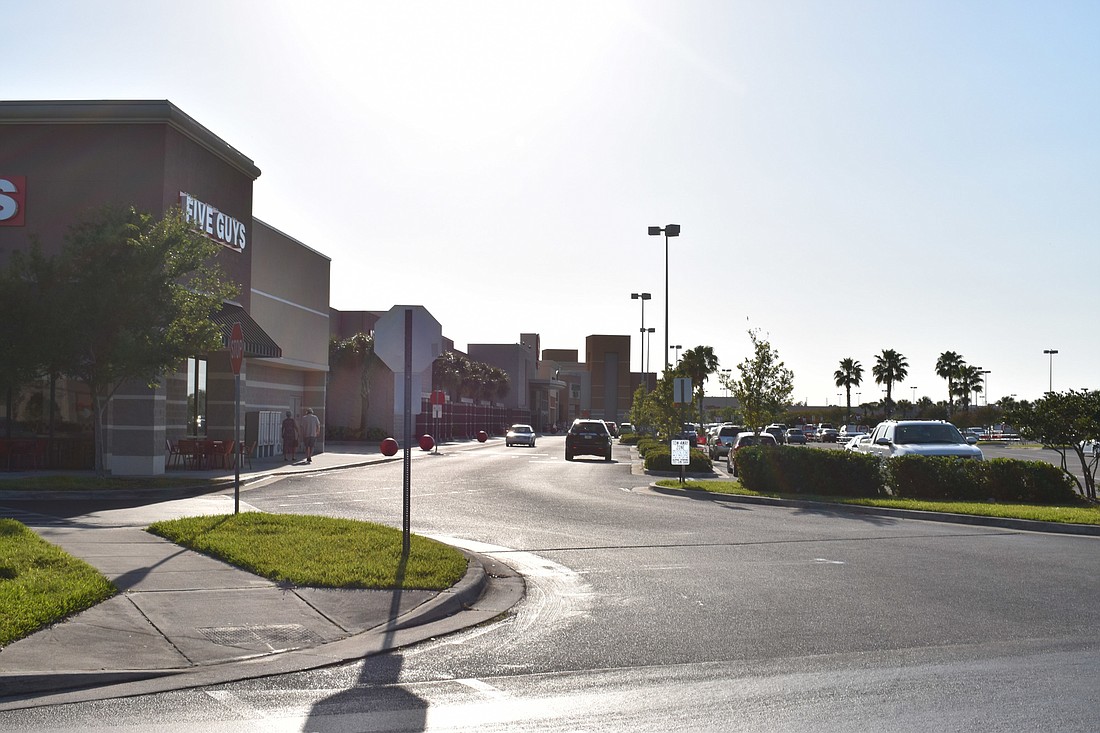- December 13, 2025
-
-
Loading

Loading

From all appearances, the Shoppes at Park Place seems to be defying the retail apocalypse that is crippling so many shopping centers nationwide.
The Pinellas Park power center is nearly fully occupied by credit tenants such as Target, Marshalls, a Regal movie theater, Michaels Arts & Crafts, Petco and a raft of modern restaurants such as Pollo Tropical, Starbucks, Chipotle, among others.
But instead of being a beacon of light amid a darkening commercial real estate sector, the 7400 U.S. 19 North center is facing a $71 million foreclosure lawsuit — one of the largest along the Gulf Coast since the past decade’s economic recession.
The property could soon get a new owner, thanks to a marketing effort by commercial real estate brokerage firm Colliers International, but questions remain as to whether the former Pinellas Square Mall can ever again regain its luster.
Retail centers throughout Florida have struggled to maintain viability amid the growing acceptance of online shopping, but in the case of Shoppes at Park Place, it appears an equally insidious culprit is to blame for its troubles: Too much debt.
Shoppes at Park Place serves as a cautionary tale against over-leverage that mall and strip center owners alike need to heed in an era in which shopping trends point more to digital selection rather than from brick-and-mortar outlets.
Owners KB Parkside LLC and Boulder Venture South LLC, companies controlled by Robert E. Schmidt Jr. and Kelly Schmidt, bought the 42-acre property in 2004 for $12 million, Pinellas County records show.
Two years later, the companies obtained a $71 million loan from Principal Life Insurance Co. secured by the 500,000-square-foot center. A year later, that same debt was securitized by Morgan Stanley Corp. and divided up into commercial mortgage-backed securities, according to a foreclosure lawsuit filed last year in Pinellas County.
Morgan Stanley, in turn, eventually assigned the loan to U.S. Bank National Association, following stints with Bank of America and LaSalle Bank N.A.
The loan matured in early January 2017, with a balloon payment due at that time.
When the loan failed to be repaid, however, U.S. Bank declared it in default — despite the center’s 97% occupancy.
“Notwithstanding the plaintiff’s demand for payment, borrower has failed and neglected to pay to plaintiff the amounts detailed in the notice of default and demand for repayment, and has further refused to remit rents to the plaintiff,” the 17-page lawsuit states.
Neither Robert Schmidt nor Kelly Schmidt, U.S. Bank attorney Zachary Bancroft nor KB Parkside counsel Jon Coats Jr. returned telephone calls for comment on the status of Shoppes at Park Place or why the center’s debt level became so inflated relative to its purchase price.
Several Tampa-area commercial real estate brokerage firms with retail specialties also declined to comment, including Colliers International, CBRE, Cushman & Wakefield and Franklin Street, citing either an interest or potential interest in the property.
Commercial real estate research firm Trepp, which tracks CMBS loans, notes the Shoppes at Park Place debt is larger than the other top four delinquent securitized loans of 90 days or more — combined.
The next-largest default, by comparison, is for just over $28 million, according to Trepp.
Today, while the power center operates as normal, interest on the original loan ratchets up by $19,491 daily at a default rate of 9.88% — roughly twice the amount of the original note, according to the foreclosure lawsuit.
Default rate interest, late charges and processing fees have tacked on another $1.7 million to the original debt, records show.
In all, KB Parkside and Boulder Venture South owed $74.77 million as of last month, the lawsuit states.
Shoppes at Park Place, meanwhile, could soon have a new owner — and a fresh start.
Listing documents on the online site Crexi indicate Colliers International Tampa Bay has been retained to market the property for sale.
Though no price is attached, Shoppes at Park Place is described in marketing materials as a “trophy asset” with a “superior trade area population base.”
Colliers International Managing Directors Mike Milano and Sean Glickman declined to comment, through a firm spokeswoman.